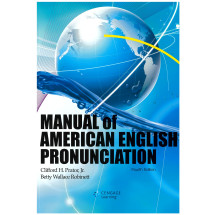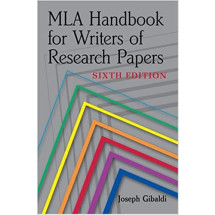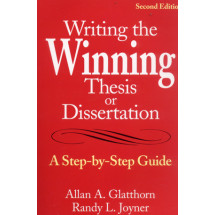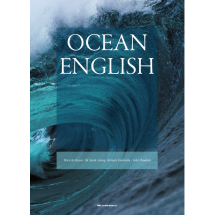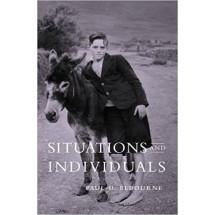Preface to the Instructor
Preface to the Student
Chapter 1 Writing from Research
1a Why Do Research?
1b Learning Format Variations
1c Understanding a Research Assignment
Understanding the Terminology
1d Establishing a Schedule
Chapter 2 Finding a Topic
2a Relating Your Personal Ideas to a Scholarly Problem
Connecting Personal Experience to Scholarly Topics
Speculating about Your Subject to Discover Ideas and to Focus on the Issues
2b Talking with Others to Find and Refine the Topic
Personal Interviews
Online Discussion Groups
2c Using the World Wide Web to Refine Your Topic
Using an Online Subject Directory
Using an Internet Key-word Search
2d Using the Library’s Electronic Databases to Find and Narrow a Subject
2e Using the Library’s Electronic Book Catalogs to Find a Topic
2f Expressing a Thesis Statement, Enthymeme, or Hypothesis
2g Drafting a Research Proposal
The Short Proposal
The Long Proposal
Your Research Project
Chapter 3 Finding and Filtering Electronic Sources
3a Beginning an Online Search
3b Reading an Online Address
3c Using a Search Engine
Subject Directory Search Engines
Robot-Driven Search Engines
Metasearch Engines
Specialized Search Engines
Educational Search Engines
Educational Search Engines Maintained by Libraries
3d Searching for Articles in Journals and Magazines
Online Journals
Online Magazines
3e Searching for Articles in Newspapers and Media Sources
3f Accessing E-Books
3g Using Listserv, Usenet, and Chat Groups
E-mail News Groups
Real-Time Chatting
3h Examining Library Holdings via Internet Access
3i Finding an Internet Bibliography
3j Conducting Archival Research on the Internet
Go to the Library
Go to an Edited Search Engine
Go to a Metasearch Engine
Use Search Engine Directories
Go to a Listserv or UseNet Group
Go to Newspaper Archives
Your Research Project
Chapter 4 Gathering Data in the Library
4a Launching the Search
4b Developing a Working Bibliography
4c Finding Books on Your Topic
Using Your Library’s Electronic Book Catalog
Using the Library’s Printed Bibliographies
4d Finding Articles in Magazines and Journals
Searching the General Indexes to Periodicals
Finding Indexes by Discipline in Appendix B
Using the H. W. Wilson Indexes
Searching for an Index to Abstracts
Searching for Abstracts of Dissertations
4e Searching for a Biography
4f Searching for Articles in the Newspaper Indexes
4g Searching the Indexes to Pamphlet Files
4h Searching for Government Documents
4i Searching for Essays within Books
4j Using the Microforms
Chapter 5 Conducting Research Outside the Library
5a Investigating Local Sources
Interviewing Knowledgeable People
Writing Letters and Corresponding by E-mail
Reading Personal Papers
Attending Lectures and Public Addresses
5b Investigating Government Documents
5c Examining Audiovisual Materials, Television, and Radio
5d Conducting a Survey with a Questionnaire
5e Conducting Experiments, Tests, and Observation
Your Research Project
Chapter 6 Understanding and Avoiding Plagiarism
6a Using Sources to Enhance Your Credibility
6b Placing Your Work in Its Proper Context
6c Honoring Property Rights
6d Avoiding Plagiarism
Common Knowledge Exceptions
Correctly Borrowing from a Source
6e Sharing Credit in Collaborative Projects
6f Honoring and Crediting Sources in Online Classrooms
6g Seeking Permission to Publish Material on Your Web Site
Your Research Project
Chapter 7 Finding and Evaluating Sources
7a Finding Reliable Sources
7b Selecting a Mix of both Primary and Secondary Sources
7c Evaluating a Source
Evaluating the Key Parts of an Article
Evaluating the Key Parts of a Book
Evaluating the Key Parts of an Internet Article
7d Outlining a Source
7e Summarizing a Source
7f Preparing an Annotated Bibliography
7g Preparing a Review of the Literature on Topic
Your Research Project
Chapter 8 Organizing Ideas and Setting Goals
8a Charting a Direction and Setting Goals
Using a Basic, Dynamic Order to Chart the Course of Your Work
Using Your Research Proposal to Direct Your Notetaking
Listing Keywords and Phrases to Set Directions for Notetaking
Writing a Rough Outline
Using Questions to Identify Issues
Setting Goals by Using Organizational Patterns
Using Approaches across the Curriculum to Chart Your Major Ideas
Using Your Thesis to Chart the Direction of Your Research
8b Using Academic Models (Paradigms)
A General All-Purpose Model
Paradigm for Advancing Your Ideas and Theories
Paradigm for the Analysis of Creative Works
Paradigm for Argument and Persuasion Papers
Paradigm for Analysis of History
Paradigm for a Comparative Study
8c Writing a Form...


